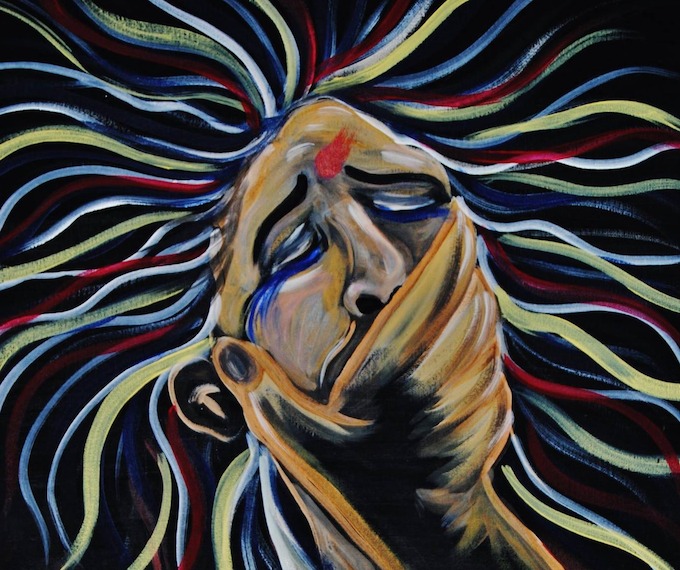Tamil Guardian editorial, April 19, 2021

Illustration: Keera Ratnam
Across the North-East, a crackdown is in full effect. Despite a renewed international focus on the island’s human rights record following the passing of yet another UN resolution on Sri Lanka, the state has decided to respond by doubling down on its repression. The expansion of the Prevention of Terrorism Act (PTA), the proscription of hundreds of Tamil diaspora members and the brazen arrest of Jaffna Mayor Viswalingam Manivannan show that Colombo will not respond to calls for reform. These actions, whilst shrouded in the rhetoric of national security, lay bare the intentions of the Sri Lankan state, not only to block justice for genocide and mass atrocities but also to deny even the slightest degree of autonomy to Tamils.
Since coming to power in 2019, Gotabaya Rajapaksa has stepped up a brutal campaign to squash Tamil and Muslim dissent on the island. The UN resolution and scathing report by the human rights chief who warned of the sowing of ‘seeds of violence’, have not hindered the regime. Instead in recent weeks, the expansion of the draconian PTA under the guise of “deradicalization” has led to the detention of over a dozen Tamils and Muslims so far. In addition, a number of Tamil and Muslim organisations have also been proscribed by the state, with little or no explanation, alongside hundreds of individuals.
The arrest of the Jaffna mayor was the most blatant and high-profile attack on a public Tamil figure by the regime thus far. The detention of an elected Tamil official on trumped-up charges demonstrates that the state needs little excuse to crack down on Tamils. When even elected office fails to protect Tamils from the Sri Lankan security apparatus, it is crucial to remember that the more vulnerable continue to be targeted daily, from the recent PTA arrest of five Tamils including a ‘rehabilitated’ LTTE cadre to the constant threats unleashed against the families of the disappeared and of political prisoners.
As senior Sri Lankan officials rail against the purportedly high-level devolution of provincial councils, which Tamils maintain fall far short of their demands for autonomy, the mayor’s arrest demonstrates both the meaninglessness of devolution within the Sri Lankan state, and the hollowness of the regime’s claims to favour localised bodies over regional power-sharing. Colombo and its massive security apparatus has time and again displayed it can and will bypass local authorities, even courts, to advance its project to break and rebuild the Tamil homeland in its Sinhala-Buddhist chauvinist image, as demonstrated by the constant land-grabs and colonisation of the North-East. The arrest of the first citizen of Jaffna, the Tamil cultural capital and the birthplace of Tamil resistance, is calculated to send a message to those who continue to stand up against the Sri Lankan state’s relentless attacks.
Whilst the mayor’s arrest may be emblematic of the current regime’s despotic character, it was the inevitable progression of a path set in motion by the previous government, which both failed to curb the military and security state’s excesses, and itself allowed the military to target the independence of Tamil institutions, particularly the University of Jaffna – from the arbitrary removal of the Vice-Chancellor, to the hounding out of the Head of Law for daring to represent victims of the Sri Lankan military.
More than a decade after the end of the armed struggle, Sri Lanka’s stranglehold on the Tamil homeland is tightening. As many warned, the toothless UN resolution has not deterred the state from committing its abuses. Instead, Sri Lanka has signalled the authoritarian path it will follow. But as the last few months have shown, Tamils will not take these attacks lying down. This year has been characterised by waves of resistance and civil disobedience from all corners of Tamil society. The Pottuvil to Polikandy marches earlier this year gave the Tamil nation, joined by the Muslim communities of the North-East, the opportunity to express their demands with absolute clarity. Justice, accountability and self-determination remain foremost among them.
The placing of sanctions on Sri Lankan officials, the suspending of favourable trade concessions, and the prosecution of war criminals through universal jurisdiction are all tangible and immediate steps that the international community can take in response to Sri Lanka’s deterioration. However addressing broader Tamil demands for justice, including referral to the International Criminal Court, and self-determination will be vital in curbing this descent. The Sri Lankan state has shown itself to be irredeemable. The current regime’s preoccupation with ‘political victimisation’ has already dismantled the very few advances made under the previous government, scuppering cases built up against senior military officials for egregious crimes. Rather than attempting to placate the Tamil people with futile gestures, as the international community wasted four years doing, it is time to heed their demands, and their warnings.